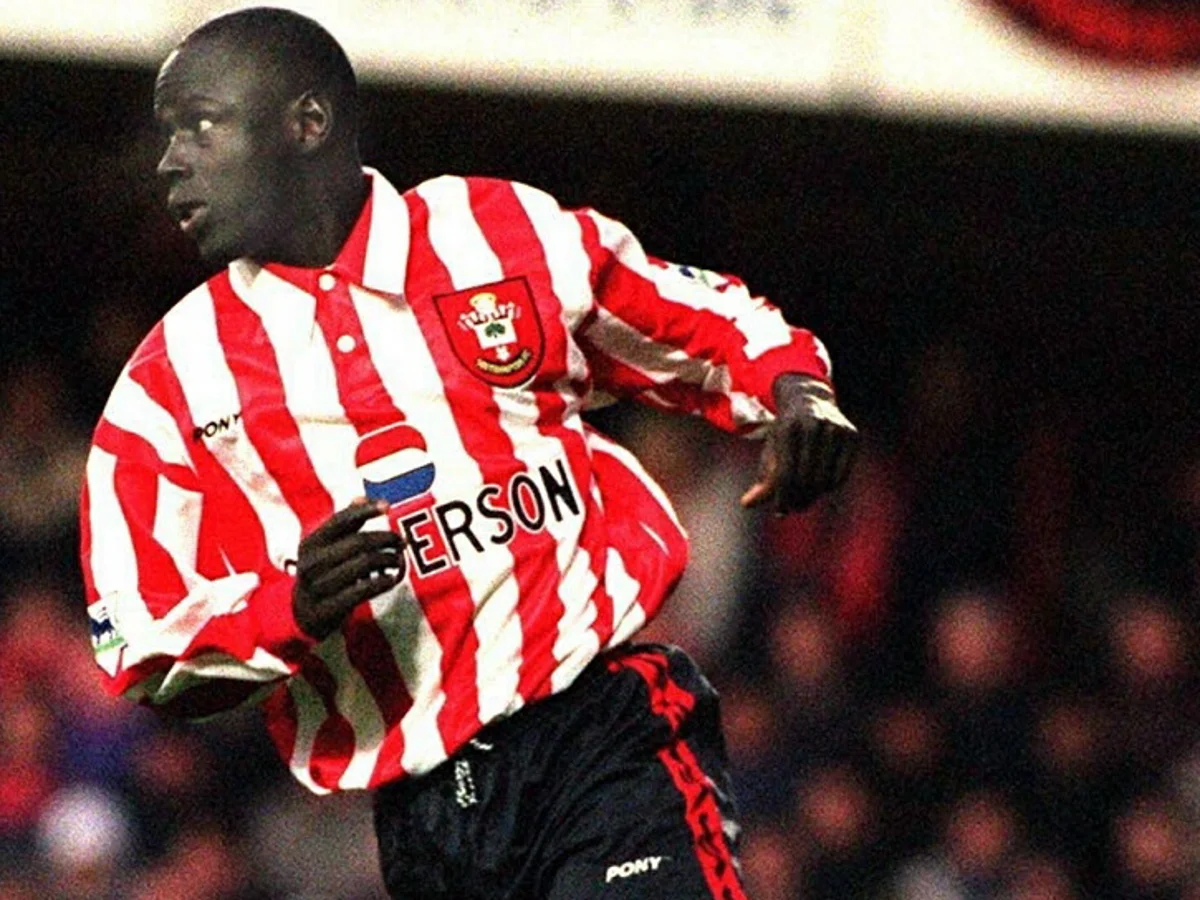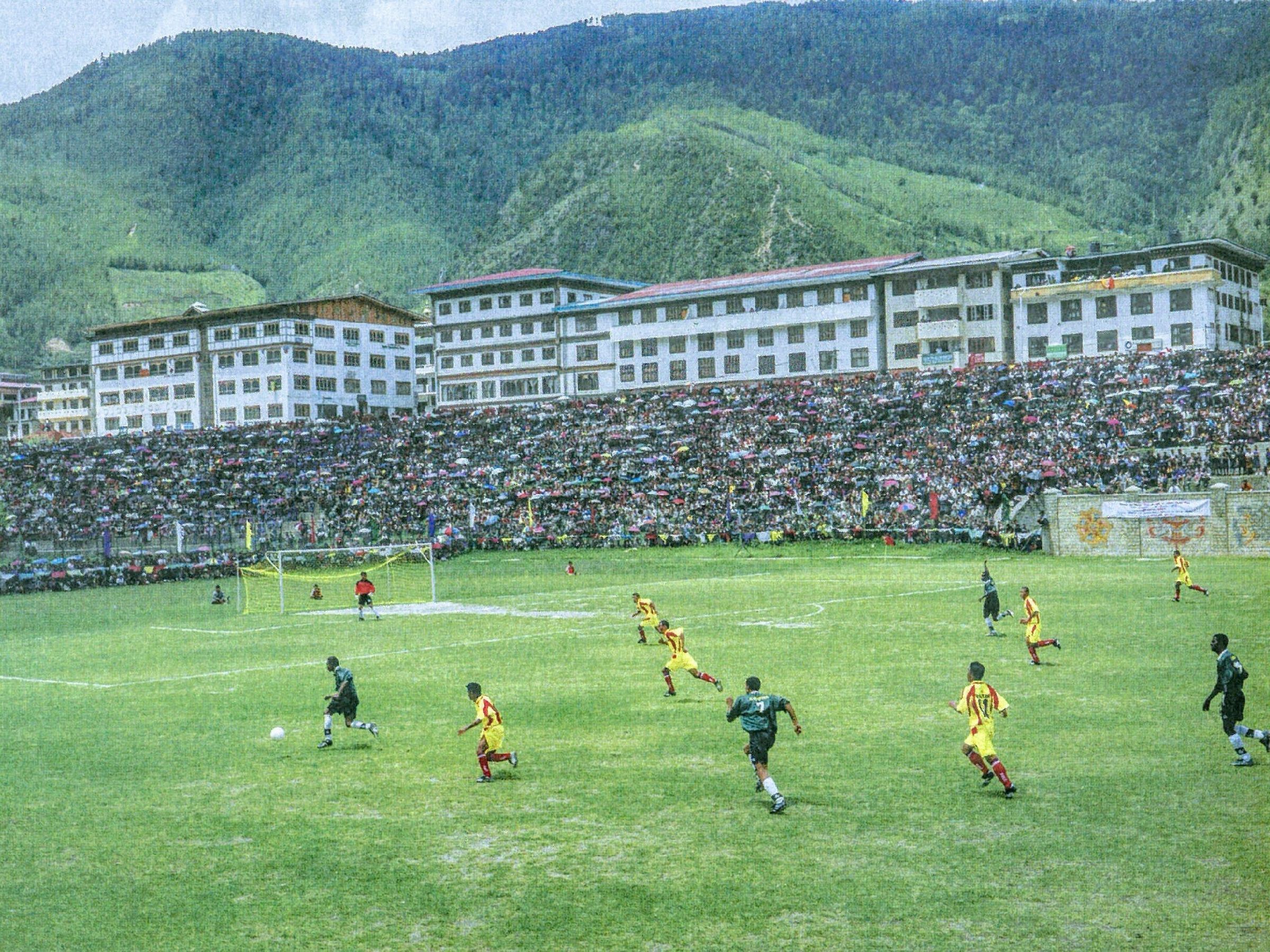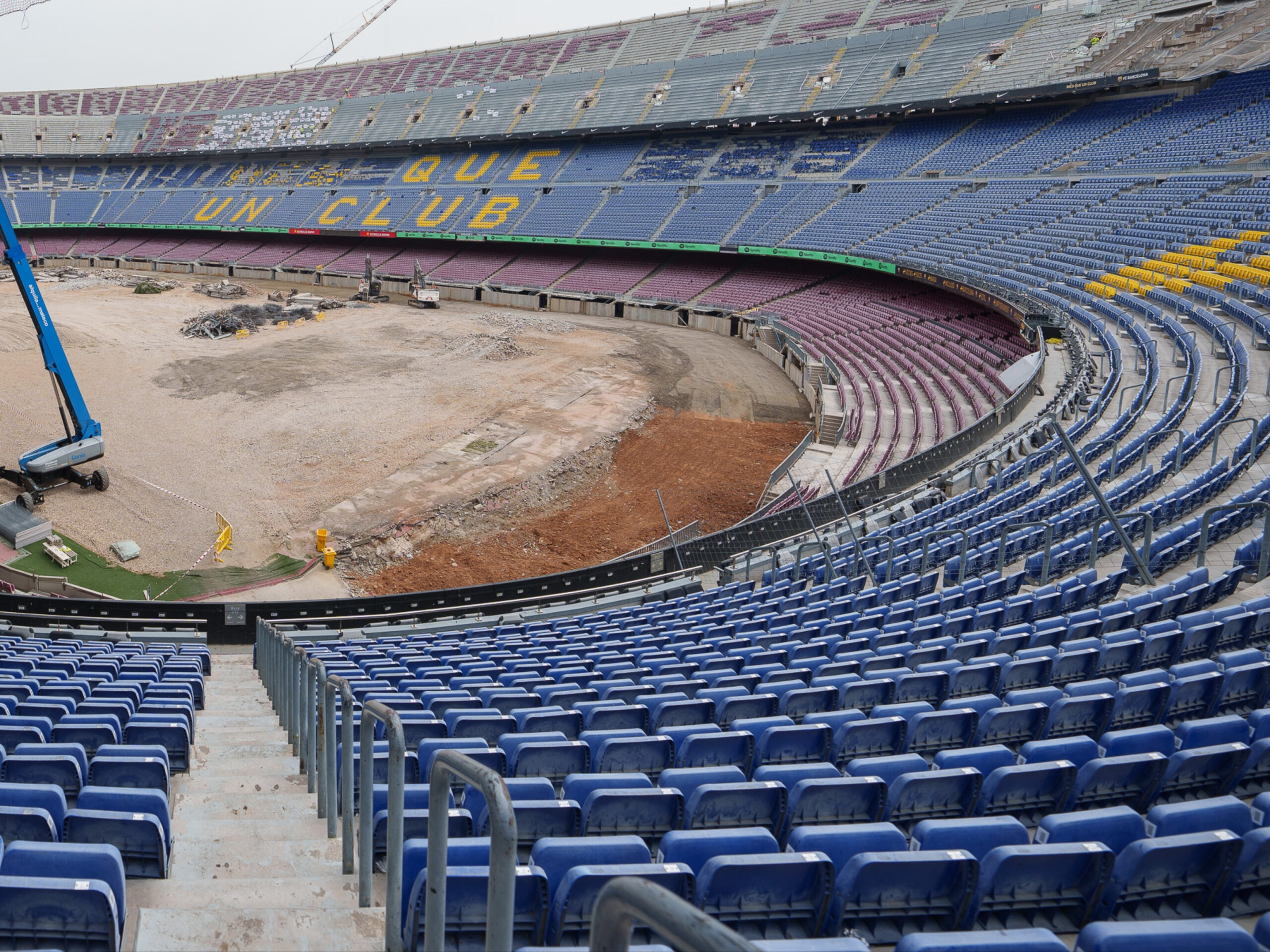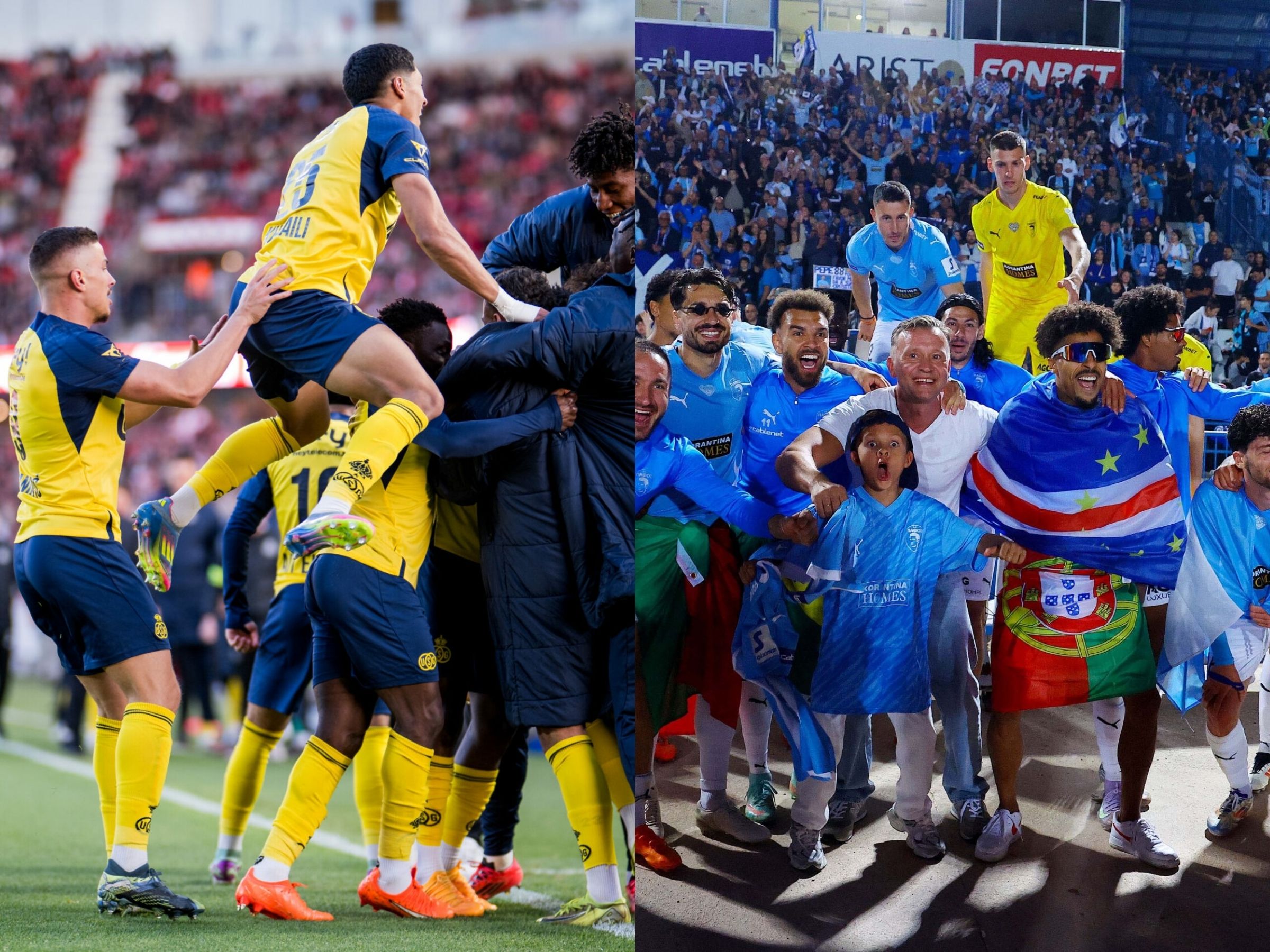We’ve all heard of poor signings in football. A club brings in a player, expecting them to contribute to its overall success—whether as a starter or a role player—only for those hopes to come crashing down when it becomes clear they’ve made a big mistake.
Over the years, we’ve seen plenty: Alexis Sánchez to Manchester United, Antony to—once again—Manchester United, Danny Drinkwater to Chelsea. The list goes on.
But no signing was as disastrous, and no experience as surreal, as Ali Dia’s in the Premier League. In fact, he was so bad that his teammates thought an ordinary fan had won a competition to train with the first team.
It was 1996, and Liverpool legend Graeme Souness had just been told on the phone that Ali Dia was the cousin of George Weah—a Ballon d’Or-winning striker and future President of Liberia.
Scouting was different back then. There weren’t video clips of every player available to club officials, so Souness had little choice but to believe that Dia was part of the Weah family.
While that alone didn’t guarantee automatic success or a direct promotion to the first team, it was enough to get him a trial at Southampton, who were battling relegation from the Premier League that season.
“He’s played with George Weah at Paris Saint-Germain, and last year (1995) he was playing in the second division in Germany. When someone like that gives you a recommendation, you tend to sit up and take notice,” Souness had said, as quoted by The Athletic.
In reality, Dia was playing in the eighth tier of English football with Blyth Spartans. Somehow, that didn’t stop him from securing a move to a top-flight club. But hiding the fact that he wasn’t anywhere near Premier League quality was never going to be easy—something his teammates noticed from the very start.
A Shocking Lack of Ability
It was evident that Dia had never played top-level football. His ability on the ball was catastrophic, as his Southampton counterparts noted from day one, including Egil Ostenstad, a striker who had just joined the Hampshire-based club not too long ago.
Before the days of video scouting and full-fledged academy programs, it was not too uncommon to have potential players come in for trials at clubs. A select few were special and would stay on, but most of them didn’t. Dia, surprisingly, not only stayed but also went on to make his Premier League debut.
But one thing was certain—he was NOT as good as George Weah.
“It was easy to see that this guy had never been close to the top level in football. He was very, very poor. It wasn’t just because he had a bad day either,” Ostenstad told The Athletic.
Then why did Graeme Souness not give him the boot?
Well, he was desperate. Southampton was riddled with injuries, and Dia had come in for training just a few days before a crucial game against Leeds United at St. Mary’s Stadium.
“Graeme took a chance on him on very short notice—no one had even scouted him or knew anything about him,” Claus Lundekvam, a center-back at the club, added.
However, there were no plans of making Dia play. Souness wanted a full bench just in case, which is why Dia had traveled to the game with the first team, living the life of any ordinary fan, who arguably would have done just as good, if not better, than him.
Tall Tales in the Dressing Room
Before matchday, the Southampton locker room truly got a taste of what kind of person Dia really was. He wasn’t a bad guy and was quite vocal, engaging in dressing room banter with seasoned professionals around him.
But some of the claims he made were so ridiculous that the players understood he was lying. Dia claimed to know David Ginola from his Paris Saint-Germain days, but quite possibly forgot that there were actually footballers in the club who had real connections.
1. Ali Dia on his Southampton debut vs. Leeds (1996)
Lasted 21 minutes
He he regarded as the worst footballer of all time because he was never a professional, but lied to Southampton boss Graeme Souness to have been a George Weah cousin, earning himself the manager’s trust. pic.twitter.com/DcMCQ7rEZx
— HF World (@hfworld_) January 26, 2025
Ostenstad recalled how when an unnamed Southampton player who actually knew Ginola called the Frenchman up, Dia ‘ran out of the room’.
Was he lying? Of course, he was. Because Dia never played for any top division club in Europe, let alone PSG. “It was obvious that he was very good at storytelling!”
A Bizarre Debut
The Southampton players were stunned when they saw Ali Dia’s name on the team sheet. Simply put, that’s how bad he was. “I remember thinking to myself, ‘This is getting a bit strange now’,” Ostenstad recalled.
No one had expected to see him at St. Mary’s Stadium that afternoon, yet there he was, preparing for what would be the biggest day of his life. Even making the bench for a Premier League club was an achievement in itself.
In hindsight, one can only wonder just how desperate Souness must have been that day to have no one else but Dia as backup.
He was likely praying for a smooth game—one that wouldn’t force him to bring on the Senegalese forward, who claimed to have represented his country over a dozen times. But in the 32nd minute, Southampton legend Matt Le Tissier had to come off due to injury.
The entire stadium held its breath in anticipation of Dia’s debut. Fans had never seen him play before, and while the Southampton players knew exactly what to expect, the crowd remained oblivious to the fact that they were about to witness one of the most bizarre moments in Premier League history.

“I just couldn’t believe he was playing there,” Ostenstad continued.
As soon as he came on, the players set him up for an open goal that would have brought the scores level, but unsurprisingly, Dia missed. The crowd couldn’t believe it, but the players reacted indifferently, having witnessed moments like this in training quite frequently leading up to the game.
The Southampton and Leeds players quickly understood that he had no footballing knowledge and was simply moving about on the pitch, clueless about what needed to be done.
Lundekvam said, “His first touch was horrendous. After seeing his first two touches, I remember thinking, ‘This is hopeless!’”
Souness showed more patience than most managers would. After 53 minutes, he took Dia off to limit the damage, and although Southampton lost 2-0 that day, all the players could think about was how someone like Dia could just come in and play a half of football in arguably the best league in the world.
The Aftermath of a Legendary Hoax
The aftermath of this historic Premier League debut was just as astounding. Dia left the pitch in the 85th minute and was never seen again by anyone at the club. He simply disappeared altogether and didn’t even return to collect his belongings.
Rumors in the following weeks further tainted his reputation. Reports claimed that he had stolen towels from the hotel where he was staying—the same one where Ostenstad was living temporarily. Dia also didn’t pay his bills, something Southampton had to handle later.
His contract was still active for a few more weeks, but he neither saw it out nor likely got paid. To the press, however, both he and Southampton became a laughing stock.
The phone call that convinced Souness that Dia was Weah’s cousin turned out to be a hoax, leading to the creation of the worst player in Premier League history.





